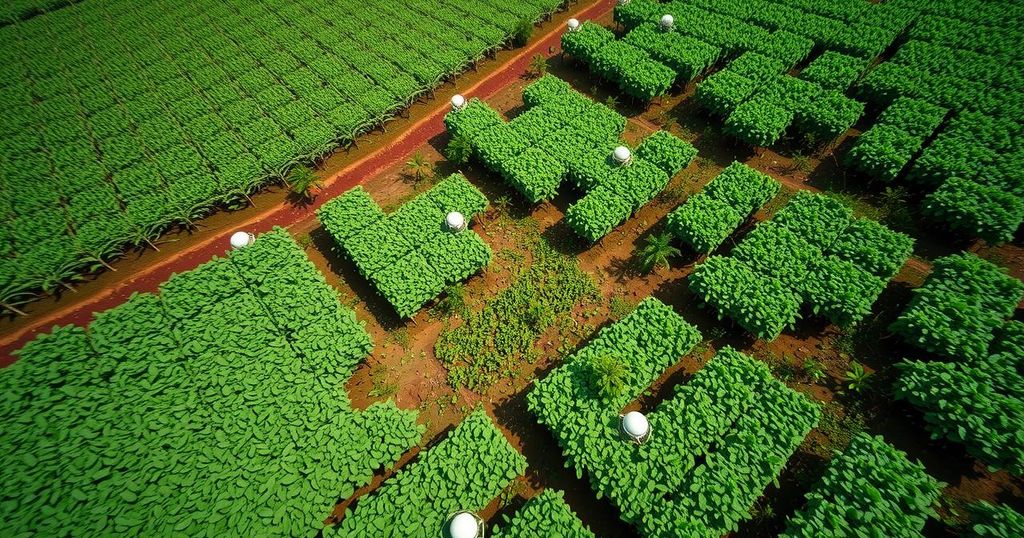Farmers in Nigeria are leveraging artificial intelligence monitors to enhance agricultural productivity amid climate change challenges. Dandam Nangor reports a 20% increase in pepper production thanks to AI technology. Although innovations improve operations, critics emphasize the need to address environmental sustainability and infrastructure in the agricultural sector.
In Nigeria, an innovative approach to agriculture is being adopted as farmers utilize artificial intelligence (AI) monitors to enhance crop production. Dandam Nangor, a 34-year-old farmer, utilizes AI technology to assess his greenhouse conditions effectively. Through the use of soil probes that relay information to his mobile device, Mr. Nangor reports a notable increase in his pepper production by 20%.
The emergence of these technologies occurs in a context where agriculture constitutes approximately 20% of Nigeria’s GDP. However, climate change poses significant challenges for smallholder farmers across West Africa, particularly concerning erratic rainfall patterns. Stephanie Meltus, founder of Green Eden, emphasizes the necessity of addressing these climate-related issues through innovative solutions, as her company has implemented technology in over 70 farming operations.
The tech landscape in Nigeria is increasingly dynamic, with startups bridging the divide between urban tech innovation and rural agricultural practices. Mercy Atsuku, a poultry farmer who has adopted monitoring systems from Anatsor, observes remarkable improvements in her chicken farm operations, significantly reducing mortality rates. The tailored technology provides real-time monitoring of conditions such as temperature and humidity, allowing for more efficient management of livestock.
Experts suggest the newfound agricultural technology’s potential comes at a critical juncture. According to Professor Nuhu Adamu Gworgwor of the University of Jos, climate change and urbanization threaten to drive many citizens away from agriculture. Although innovative systems improve productivity, critics caution that the focus on technology must also consider environmental sustainability and infrastructure challenges, particularly in rural regions where internet access is limited.
This initiative reflects an important shift towards integrating technology in agriculture, presenting both opportunities and challenges. AI monitors showcase a willingness to adapt to climate conditions; however, broader infrastructural improvements are necessary to yield consistent benefits across the agricultural sector in Nigeria.
The integration of artificial intelligence in Nigeria’s agricultural sector presents promising advancements, allowing farmers like Dandam Nangor to optimize productivity and adapt to increasing climate pressures. While innovative technology facilitates significant improvements in crop and poultry management, it is crucial to address broader systemic challenges such as infrastructural deficiencies and environmental sustainability. Balancing tech adoption with comprehensive agricultural strategies may enhance the resilience of Nigeria’s farming communities.
Original Source: www.thehindu.com






